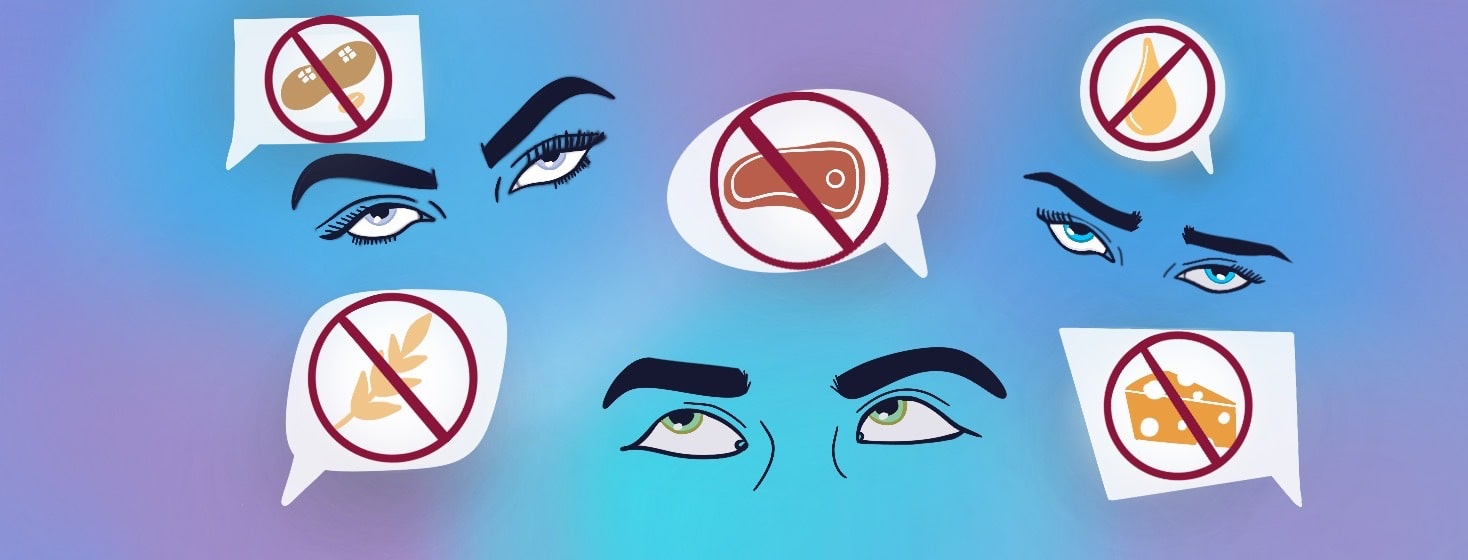When My Dietary Restrictions Are Met with Eye Rolls
Another conference is scheduled at work, and my eyes scan an email to see what dinner options will be available. I sigh when I read "fried chicken, rolls, and green beans cooked in ham."
"Well, looks like I'll bring my dinner," I think to myself. Or could I turn the tables on this situation?
As a public school educator, meetings arise occasionally wherein the building principal provides food for the teachers. Inevitably, the food offerings consist of items that I can't stomach – literally, my ulcerative colitis won't allow me to digest it. So, what's a person with IBD to do when dietary restrictions force them to walk away from restaurants or social gatherings because of limited food options?
Changing my diet because of ulcerative colitis
Since I've lived with colitis for over 30 years, I know what my gut can and cannot tolerate. About a decade ago, I removed gluten and meat from my diet and realized that my colitis dragon (as I fondly refer to it) calmed. The flames of my digestive system didn't ignite its intestinal thrashing so much. My body settled into a quiet state.
That was when I realized my food choices helped me to better control my health. But I was slow in coming to this conclusion. Food, as an essential element of survival, tempts and entraps everyone from time to time. In addition, other people don't fully understand the degree to which food puts a hurting upon someone's body.
When I first removed gluten and noticed an improvement in my gut, eating out became a challenge. Restaurants in my home region weren't ready to adapt offerings for allergy and food sensitivity issues. My first approach involved leaving restaurants that didn't offer gluten-free options. Then, my husband became my voice. He spoke to servers when I couldn't quite ask for a special menu.
Going to restaurants with dietary restrictions
At first, some restaurant workers offered judgmental comments: "Why can't you eat that?" or "Oh, you're one of those people." Cue the eye roll. Those people. As if I'm someone from another planet with 3 heads. Or maybe someone who's trying the latest diet fad.
My husband (who has quite the intimidating physical presence) usually replied, "No, she has a health issue and can't eat that. You need to show us what she can eat." That put the onus back on them. As an introvert, I appreciated his championing my health.
Over time, though, I realized I needed to advocate for myself. Finding one's voice is empowering and essential. So, I created my unique approach to anyone I confronted that didn't understand my gastrointestinal needs.
With humor as my go-to weapon, I smile at people and say, "You do NOT want to see the aftereffects of me eating that. It's ugly." Or, sometimes I laugh at food options and proudly proclaim, "Well, that's gonna sentence me to a day spent on the commode." Humor makes the point without me having to feel exasperated or aggravated.
How I approach social eating with UC
Now that I'm vegetarian and gluten-free, I approach eateries from a new perspective. Upfront, I ask if the kitchen can make me alternatives to the menu. Recently, I have found that most places will accommodate my food needs.
But in my professional environment, I finally realized that honesty is the best approach. During this school year for the parent-teacher conference, I asked if they could order some fruits and vegetables for those teachers with food allergies (because I know I'm not the only one on staff). To my surprise, I received the response, "Oh, absolutely! Are you good with a fruit and veggie tray?"
Just by taking the direct and honest approach, I discovered that even my work family will accommodate my dietary needs. I don't have to hide or feel ashamed that I can't eat what everyone else can eat.
Another valuable rule of thumb I've learned revolves around social gatherings. I've learned that if I'm going to eat at parties, I need to bring food items that I can eat. Showing up for a holiday dinner or NFL Super Bowl party means that I show up with fruits and vegetables. Most of the time, people are only happy to partake in my vegetarian goodies.
Honoring my health by sticking to my dietary restrictions
In the end, for anyone backward or hesitant about food restrictions like I used to be, I say honesty goes a long way. People are more understanding and supportive than we sometimes give them credit. It no longer bothers me to state that I have colitis and with it comes dietary restrictions.
Besides, I like the challenge of creating my own meals at restaurants. I once had a chef at a Boston restaurant deliver my "special" food order and say, "This looks so good. I think I’ll add it to the menu." How's that as a compliment for dietary restrictions?
Let me leave you with one last point. My "special" diet allows me to live with colitis, experiencing pain-free days more often. My health is in my hands. Therefore, I now use my voice and make my food requests. As my favorite quote states, from author and motivational speaker Jim Rohn, "Take care of your body. It's the only place you have to live."
How do you handle the frowns and eye rolls of others about your food needs? Please leave a comment or share your story with us.

Join the conversation